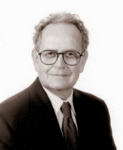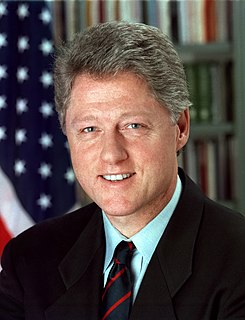Howard James Kaloogian is an American politician and a former member of the California State Assembly. A Republican, he failed in 2004 to be elected to the United States Senate and in 2006 to be elected to the House.

The 2003 California gubernatorial recall election was a special election permitted under California state law. It resulted in voters replacing incumbent Democratic Governor Gray Davis with Republican Arnold Schwarzenegger. Davis was ineligible to run for a third term due to term limits after the recall election. The recall effort spanned the latter half of 2003. Seven of the nine previous governors, including Davis, had faced unsuccessful recall attempts.

The Illinois gubernatorial election of 2006 occurred on November 7, 2006. The Governor of Illinois, Democrat Rod Blagojevich, won re-election for a four-year term scheduled to have ended on January 10, 2011. However, Blagojevich was impeached and convicted in 2009. Many observers expected the race to be close, especially considering the polling, which has shown Governor Blagojevich had a high disapproval rating. However, the Republicans had fared poorly in elections since 2002 due to scandals involving prior Governor George Ryan, and the increasingly unpopular presidency of George W. Bush.
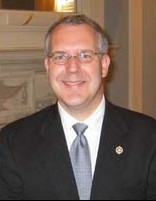
The Oklahoma gubernatorial election of 2006 was held on November 7, 2006, and was a race for the Governor of Oklahoma. The incumbent Governor, Democrat Brad Henry, was re-elected with more than 60 percent of the vote, beating Republican Ernest Istook, a member of the United States House of Representatives. As of 2019, this is the most recent election in which a Democrat has been elected Governor of Oklahoma.

The 2006 Minnesota gubernatorial election took place on November 7, 2006. Incumbent Tim Pawlenty was endorsed by the state Republican convention on June 2, 2006, while the state Democratic–Farmer–Labor convention endorsed Mike Hatch on June 10, 2006. The party primaries took place on September 12, 2006, with Hatch defeating DFL challengers Becky Lourey and Ole Savior and incumbent Pawlenty defeating Sue Jeffers. In the November 7 general election Pawlenty received a plurality of the votes, defeating Hatch by a margin of one percent. As of 2019, it is the most recent time a Republican was elected governor of Minnesota, or won any statewide race.
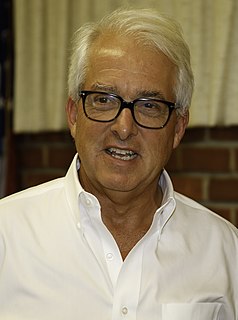
John Herman Cox is an American accountant, businessman, broadcaster, attorney, and politician. He became a California resident in 2011, and was the Republican candidate in the 2018 gubernatorial election in California, after placing second in the state's June 5 nonpartisan blanket primary. On November 6, 2018, he conceded the election to his Democratic opponent, Gavin Newsom.

The Massachusetts gubernatorial election of 2002 was held on November 5, 2002. Republican businessman and eventual 2012 presidential nominee Mitt Romney defeated Democratic state treasurer Shannon O'Brien, and was elected to a four-year term, which he served from January 2, 2003, until January 4, 2007. Every four years, Massachusetts holds statewide elections for governor, lieutenant governor, attorney general, Secretary of the Commonwealth, state treasurer, and auditor. The primary election was September 17, 2002.

The 1998 California gubernatorial election was an election that occurred on November 3, 1998, resulting in the election of Gray Davis, the state's first Democratic governor in 16 years. Davis won the general election by an almost 20% margin over his closest opponent, Republican Dan Lungren. Davis succeeded Pete Wilson who was term limited.
Christopher Joseph LaCivita is an American political consultant, and partner in FP1 Strategies, a national public-affairs and campaign firm. Since 2004, he has been president of the firm Advancing Strategies LLC. He was formerly with Crosslink Strategy, a conservative lobbying and political consulting firm founded by former John McCain advisor Terry Nelson, a founding partner of FP1 as well. LaCivita is often mentioned for his role as media advisor to the Swift Boat Veterans, an independent-expenditure group credited with a significant impact on the 2004 presidential election.
Alfred Attilio Checchi is an American businessman who was a candidate for Governor of California in the 1998 gubernatorial election, losing to fellow Democrat Gray Davis in the June 1998 primary. Checchi finished in second place in the Democratic primary, capturing 12.49% of the vote. He ran as a New Democrat and called for increased spending on education. He set a new record at the time for spending in a California gubernatorial race, spending over $40 million of his personal fortune. Checchi had previously enjoyed success in various business ventures, most notably serving as co-chairman of Northwest Airlines. He attended the Harvard School of Business. Checchi is married to his wife Kathryn and has 3 children.

Neel Tushar Kashkari is an American banker and politician who is President of the Federal Reserve Bank of Minneapolis. As interim Assistant Secretary of the Treasury for Financial Stability from October 2008 to May 2009, he oversaw the Troubled Asset Relief Program (TARP) that was a major component of the U.S. government's response to the financial crisis of 2007–08. A Republican, he unsuccessfully ran for Governor of California in the 2014 election.

The 2014 California gubernatorial election was held on November 4, 2014, to elect the Governor of California, concurrently with elections for the rest of California's executive branch, as well as elections to the United States Senate in other states and elections to the United States House of Representatives and various state and local elections.

The Michigan gubernatorial election of 2014 took place on November 4, 2014, to elect the Governor of Michigan, concurrently with the election of Michigan's Class II U.S. Senate seat, as well as other elections to the United States Senate in other states and elections to the United States House of Representatives and various state and local elections.

The 2014 Texas gubernatorial election was held on November 4, 2014 to elect the Governor of Texas. Incumbent Republican Governor Rick Perry, who had served since the resignation of then-Governor George W. Bush on December 21, 2000, declined to run for an unprecedented fourth full term, making this the first open election for governor since 1990.

Garry South is a Democratic political strategist based in California and principal of Garry South Consulting. He is best known for managing Democrat Gray Davis’ successful gubernatorial campaigns in both 1998 and 2002. In 1998, the California Democratic Party had not been successful in electing a Governor for 20 years and only 3 Democrats had won previously in the 20th century. In 2011, the journal Capitol Weekly designated South among the top 50 most influential political players in California.
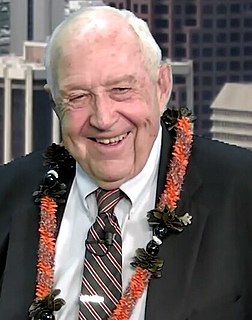
John Stanley Carroll is an American politician from the state of Hawaii. He served in the Hawaii House of Representatives from 1970 to 1978 and in the Hawaii State Senate from 1978 to 1980. He is a retired lawyer, having been educated at Saint Mary's University, the University of Hawaii at Hilo and the University of Hawaii at Manoa. He served in the United States Army during the Korean War and later transferred to the United States Air Force. He graduated the Air Command and Staff College and the Air War College, became a staff judge advocate for the Army National Guard and the Air National Guard, and retired from the Air Force as a colonel. After military service, he worked as a pilot for Hawaiian Airlines. From 1981 to 1982, he chaired the Hawaii Republican Party.
Averell "Ace" Smith is a U.S. political adviser who has worked mainly for Democratic Party candidates and initiatives. He has worked on many state and national campaigns, either independently or as part of a consulting firm which he co-founded in 1997.





